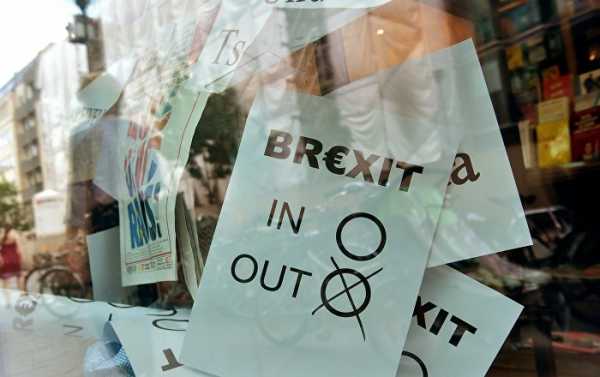
After the Brexit deal was rejected 432 to 202 by the UK Parliament last week, Prime Minister Theresa May announced that she would come up with an alternative plan on 21 January.
Under the terms of an amendment by Dominic Grieve, an anti-Brexit Tory, Prime Minister Theresa May is bound to present a Plan B for the deal on the UK’s divorce from the EU that was voted down last week.
While details of the counter-proposal to the Brexit deal remain unclear, May is believed to be willing to embrace a softer approach to the divorce.
Sky News cited unnamed Cabinet sources as saying that May could ditch Irish backstop, which envisages that all of the UK would remain in a temporary customs union with the EU until a permanent trade deal can be clinched in a bid to win over the support of the Democratic Unionist Party (DUP).
According to the insiders, the level of support expected from Labour MPs is not considered strong enough to push through the Withdrawal Agreement and the Brexit legislation required before the UK’s divorce.
The plan B motion will be laid out on 21 January, while MPs are set to vote on it on 29 January.
May’s spokesperson was previously cited by Reuters as saying that the prime minister was not taking a “no deal” Brexit option off the table after a request by Labour leader Jeremy Corbyn.
“The prime minister has been very clear that the British public voted to leave the European Union. We want to leave with a deal, but she is determined to deliver on the verdict of the British public, and that is to leave the EU on 29 March this year”, the statement read.
Theresa May failed to push the Brexit deal through the UK Parliament, where it was rejected with a vote of 432 to 202. Following the historic defeat, she promised to table an amendable motion to find a “negotiable” solution in line with the Grieve amendment.
The deal was originally supposed to have been voted on in December 2018, but the prime minister decided to postpone the procedure in the Parliament amid risks that the agreement would not find sufficient support from MPs.
The UK is set to leave the European Union on 29 March, with the transition period expected to end in December 2020.
Sourse: sputniknews.com






